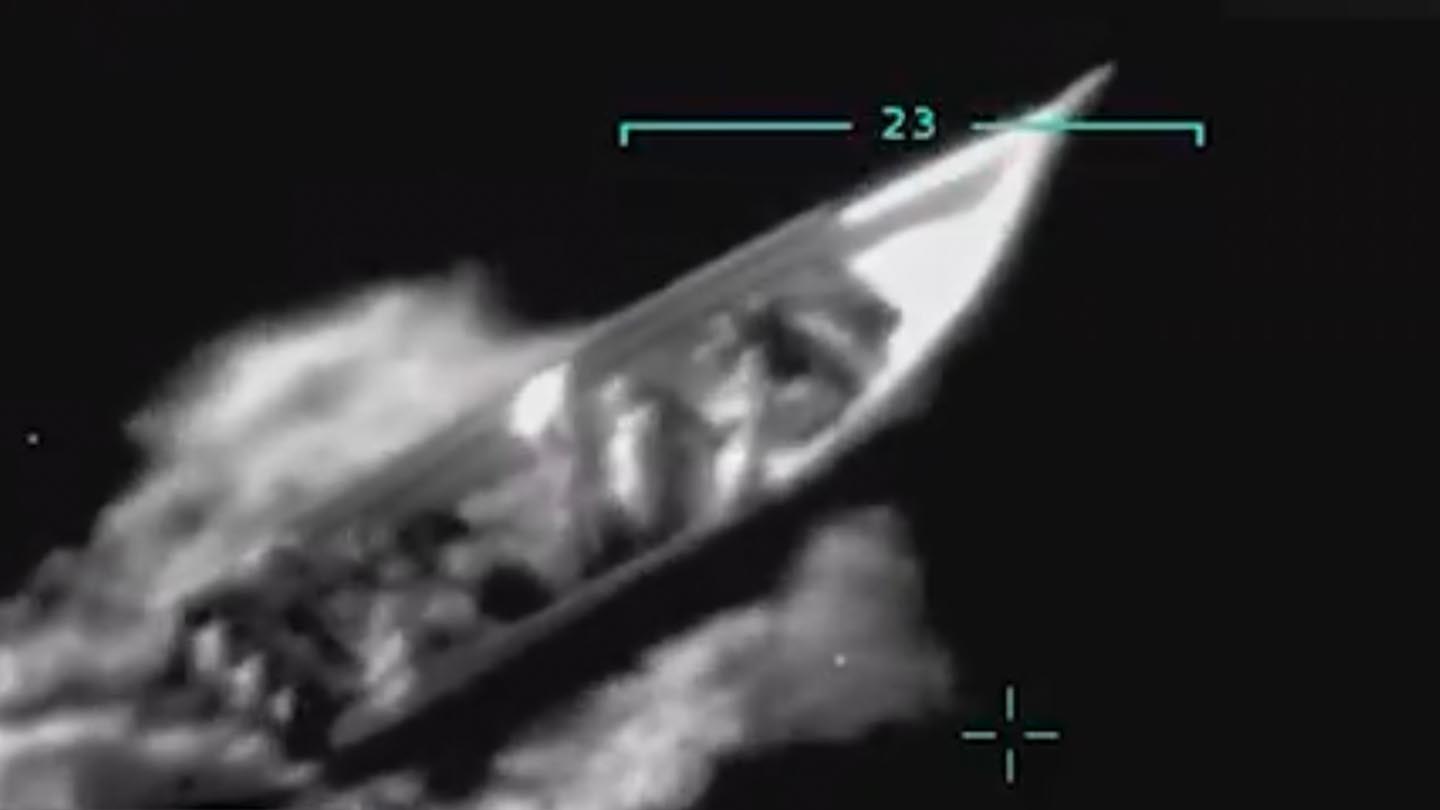KevinB
Army.ca Relic
- Reaction score
- 29,591
- Points
- 1,260
Now interestingly enough doing a frame by frame on my desktop - it gives a totally different picture than my iPhone did.
I can see the AOA from the Sensor Bird isn't blurred out (it just looked that way on my phone), and there appears to be two potential objects on the screen that could have gone boom.
1) May come in (caveats for video resolution quality) on a parabolic arc from the top left - and explodes directly over the vessel.
That is what I originally took to be the missile on my phone
2) A small Red Object that emerges from the water on the starboard of the vessel around 2/3 down the hull and moves up and then the picture is obscured by detonation.
I can see the AOA from the Sensor Bird isn't blurred out (it just looked that way on my phone), and there appears to be two potential objects on the screen that could have gone boom.
1) May come in (caveats for video resolution quality) on a parabolic arc from the top left - and explodes directly over the vessel.
That is what I originally took to be the missile on my phone
2) A small Red Object that emerges from the water on the starboard of the vessel around 2/3 down the hull and moves up and then the picture is obscured by detonation.






